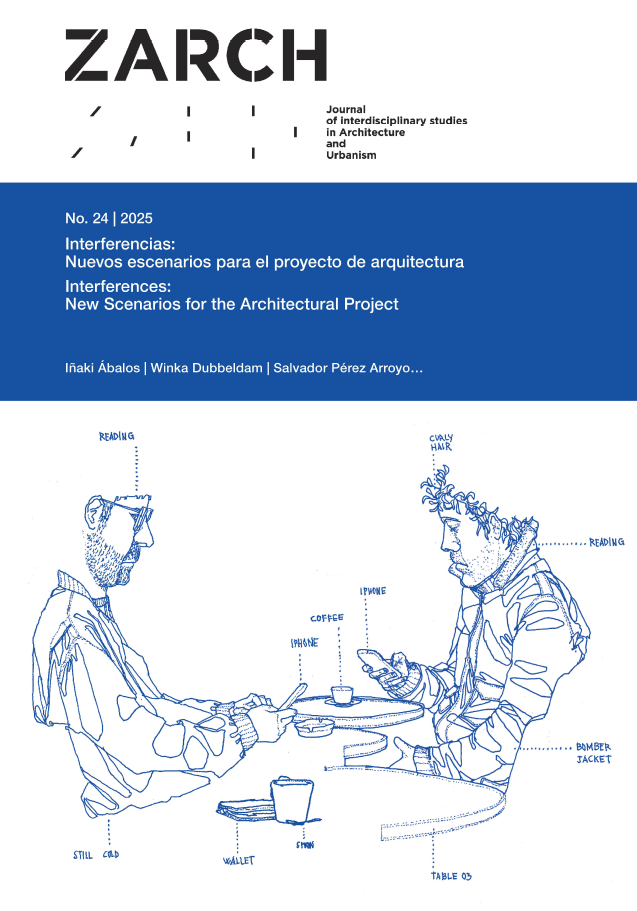Do Androids Dream of Electric Sheep? A conversation with Salvador Pérez Arroyo
DOI:
https://doi.org/10.26754/ojs_zarch/zarch.20252411663Keywords:
Architecture, Teaching architecture, Future, Teaching professionAbstract
Salvador Pérez Arroyo is something of an Eastern teacher. Even before he packed his bags and transferred his life to what we call the Far East, the being of Salvador already had a near and distant presence at the same time. From the elegance of his wandering through the classrooms and corridors of the old Madrid School of Architecture, Salvador exercised a profound, original and cultured teaching, very different from that of other contemporary colleagues. In his heterodox chair, he summoned a wide variety of professionals—from Iñaki Ábalos or Juan Herreros to Alejandro Zaera—with the sole condition of being willing to work side by side with the students to jointly unveil the future of architecture.
Salvador is an architect and an atypical academic. He is off-the-radar but still, in these turbulent times, maintains the teaching profession of those who have not given up living as long as they are lucky. Moreover, he has never refused to respond to any formula that we have proposed to him, whether that be interviews, reflections, writings, or otherwise. The conversation that is published here occurred during a new time of transition for Salvador. In this case, he moved from Vietnam to Italy, to Padua in particular, where he has decided to settle for the pleasure of recovering the conversations with his colleagues of yesteryear.
The title of the conversation, obviously taken from the work of Philip K. Dick, illustrates his interest and authority for contemporaneity. In this case, we ask questions related to the practice of the project and its teaching in this new era that artificial intelligence has opened. In his speech, many of the characters that have helped shape our time, from David Lynch to Michel Houellebecq and including the architects Sigurd Lewerentz or Le Corbusier, also appear.
Display downloads
Downloads
Published
Issue
Section
License
Copyright (c) 2025 Eduardo Delgado Orusco

This work is licensed under a Creative Commons Attribution-NonCommercial-NoDerivatives 4.0 International License.





